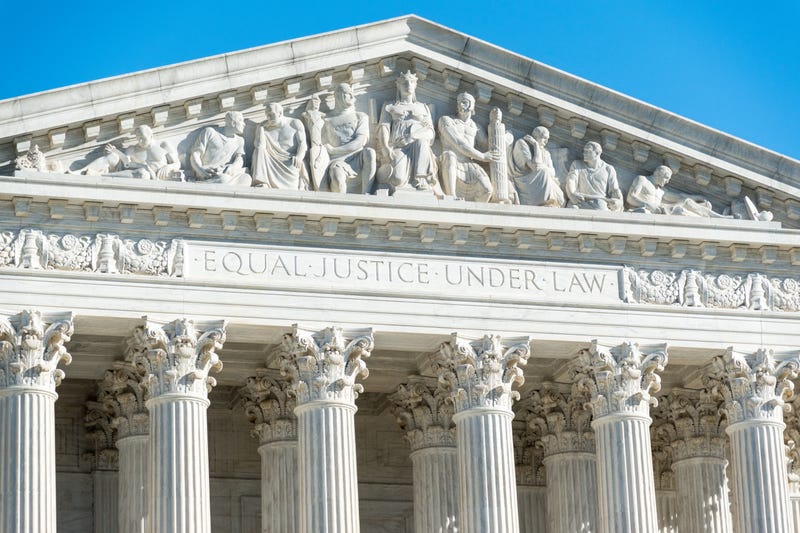
PHILADELPHIA (KYW Newsradio) — The U.S. Supreme Court will hear oral arguments Tuesday that will put the nation’s Voting Rights Act to the test once again.
The case is one that voting rights advocates have been watching for quite some time. It involves two voting laws from Arizona — a battleground state. One of the laws throws out votes cast in the wrong precinct. The other limits who can turn in mail-in ballots — only the voter, a family member or caregiver.
According to Democrats, both laws are likely to benefit Republicans by resulting in fewer minority votes cast.
Democrats say people of color are more likely to move around or have their precinct changed in Arizona, and they are more likely to need help casting their ballots than white voters.
The district court upheld the laws. The Ninth Circuit Court of Appeals reversed the decision.
Section 2 of the Voting Rights Act — the crown jewel of the civil rights movement — bars state laws that have a discriminatory impact. But the high court has shown a willingness to strike down the VRA.
“It is un-American to limit the right to vote,” said Stephen Spaulding, senior counsel for public policy and government affairs for Common Cause. “The right of citizens to vote free from discrimination is the heart of our democracy.”
In 2013, in a 5-4 decision lead by Chief Justice John Roberts, the court struck down Section 5 of the VRA, which required prior federal approval for changes to voting procedures in states known for voter suppression.
Advocates fear the 6-3 conservative majority on the high court will leave the VRA toothless.
“The court needs to do the right thing and respect the Voting Rights Act,” said Spaulding.
According to the Brennan Center for Justice, as of Feb. 21, lawmakers in 43 states have introduced more than 250 bills that would make it harder to vote.
If the VRA is struck down, the implications would be vast, so civil rights groups are pushing Congress to pass bills that would provide federal standards for voting.
Two that have considerable support in the House include the John Lewis Voting Rights Advancement Act and the For the People Act. The latter is up for consideration this week and would set a national law for voting, providing a minimum of two weeks early voting and no-excuse vote-by-mail.
